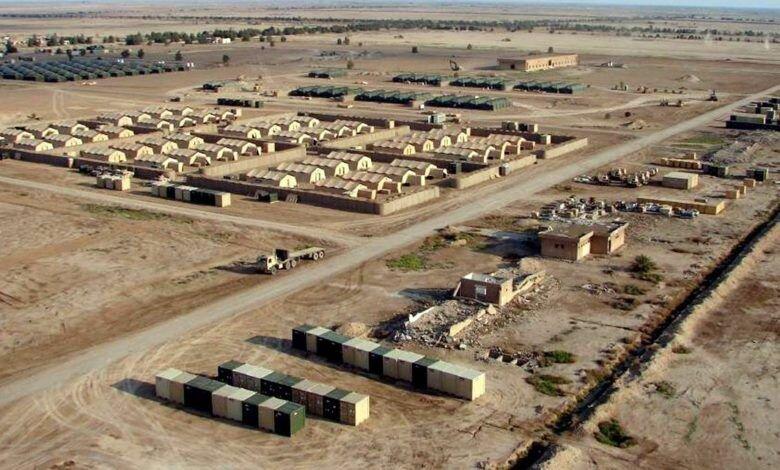Hasan Hanizadeh told the Strategic Council on Foreign Relations that “this base, which has an area of 10,000 square kilometers and has sophisticated military equipment, has been occupied by American forces since 2003 after the overthrow of the former Iraqi Baath regime.”
This expert continued that “after the assassination of Lieutenant General Haj Qasem Soleimani, the former commander of the Quds Force, and Abu Mahdi Al-Muhandis, the former deputy head of the Iraqi Hashd al-Shaabi, the Iraqi parliament obliged the Iraqi government to expel American forces from the Iraqi territory.”
Also, Hanizadeh explained that shortly after the assassination of these great generals who had played an essential role in suppressing terrorist groups in Syria and Iraq, the Islamic Republic of Iran launched 13 ballistic missiles toward the Ain al-Assad base.
According to this expert, while rebuilding the damaged facilities recently, the Pentagon moved its military headquarters to the basement of the Ain al-Assad base.
Hanizadeh further emphasized that after more than three years since the parliament approval, unfortunately, despite popular pressures, the Iraqi government could not implement the decision to expel the American troops, and the recent suspicious movements of the American forces have caused concern among the leaders of the Iraqi political currents.
He pointed out that it is said that the Pentagon has recently changed the existing military fortifications in the Ain al-Asad base without coordinating with the Iraqi government and has brought new troops into this base. He continued, “The Iraqi government has never been suspicious of the movements of American forces in the Ain al-Asad base. It has not shown any reaction, and the silence of the Iraqi government has made the political currents and the leaders of the parliamentary factions sensitive to this issue.”
The expert on Middle East issues regarding the possible goals of the United States in increasing its troopers in Iraq said that “the speculation is that the United States, especially the Joe Biden team, is trying to stage another adventure in the region on the eve of the 2024 presidential election to use it as an election propaganda process.”
Hanizadeh explained that “the perception of the United States is that Syria has managed to get out of this crisis after 12 years of breathtaking crisis and is recovering its role in regional equations.” He added, “The negative reaction of the White House, Congress, and the US State Department to the cancellation of the suspension of Syria’s membership in the Arab League shows that the US is very worried about the end of the 12-year Syrian crisis.”
The expert on Middle East issues added that “the Pentagon believes that the US Marines in Deir Ezzor province in eastern Syria will be exposed to attacks by forces affiliated with the resistance axis from now on, and the level of vulnerability of these forces will increase.”
According to Hanizadeh, at the same time, after Syria’s withdrawal from the internal crisis, space was created to strengthen the resistance front in Iraq, Syria, Lebanon, and occupied Palestine to confront the Zionist regime.
The expert continued, “Since 2016, the United States has deployed about 2,000 of its marines to train terrorist groups against the Syrian government and to cooperate with the Israeli regime in the east of the Euphrates.”
Hanizadeh said that America’s other goal of increasing troops is ” another speculation that the American Air Force and the Zionist regime may want to jointly organize a series of operations against the countries of the resistance axis in the future using the Ain al-Assad base.”
He continued, “Also, the concern caused by the recent events that happened to American warships and ships in the Persian Gulf has caused the United States to strengthen its forces at the Ain al-Asad base in Iraq.”
The expert on Middle East issues stated that “due to the failure of American policies in the region and the country’s failure to change the regional equation in favor of itself and the Zionist regime, and with the start of the presidential election campaign, there is a possibility that Joe Biden’s team will embark on a new adventure in the region.”
He emphasized that although this speculation is not very realistic, the leaders of the Zionist regime are trying to transfer this crisis outside the occupied territories due to internal problems, and they are definitely not able to carry out an operation against the axis of resistance without the support of the United States.
Hanizadeh finally emphasized that “in the coming days, the Iraqi parliament and the leaders of the popular movements in this country are expected to show appropriate reactions through the parliament to the illegal and covert movements of American forces in the Ain al-Assad base.”










0 Comments